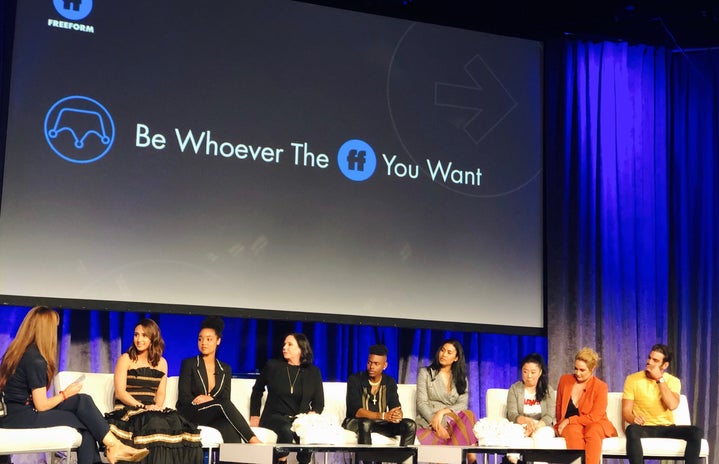In light of recent government policies to scrap PGCE bursaries and scholarships for teachers training in humanities subjects; the Department of Education’s decision to ban the use of any resources described as having ‘extreme political stances’ in schools, and the government declaring itself as ‘unequivocally against’ critical race theory, it appears that the humanities are currently under attack. As a humanities student myself, I feel it my duty to defend the humanities from such blows and provide a counter narrative which outlines why these three decisions have dangerous repercussions for the future of education in the UK.
There has long been an overlooking and underfunding of the arts and humanities in favour of STEM subjects, which are unequivocally viewed as more valuable and employable. However, the recent move to cut PGCE bursaries for arts and humanities subjects by 2021, and to only provide scholarships for Chemistry, Computing, Maths, and Physics sends a clear message: the arts are expendable to the current government.
The Department of Education argues that ‘the financial incentives are set to attract those to the hardest to recruit subjects’ – STEM subjects – which are both difficult to recruit into and have lower rates of job retention than humanities subjects. Yet there is an apparent oversight here; lack of bursaries for humanities subjects imposes a financial barrier to those from lower economic backgrounds.
The government will still provide the tuition fee loan of up to £9250, and a maintenance loan of up to £12,010. Yet for some, the difference between a bursary and relying on government loans alone could mean the difference between being able to afford teacher training, or not. This barrier to graduates from lower income backgrounds could also have an impact on the ethnic diversity of not only arts education, but also the UK’s future arts sector. As Harriet Clifford argues: ‘limiting the pool of teachers in turn limits the cohort of students, which limits the pool from which our future musicians, actors, Netflix producers, authors, journalists, filmmakers will be drawn.’
In the midst of a global pandemic, with much focus (and hope) resting on a vaccine, it would be nonsensical to suggest that the investment into STEM subjects is too much and should be diverted to the humanities. (That said, think of the many arts-based things you have relied upon during lockdown, such as TV, literature, theatre, music…) But in truth, I think very few people would argue against the need to provide for the next generation of doctors, scientists, researchers and engineers. It is not, and never has been, a case of pitting STEM subjects and the arts against each other to see which is more important or useful to society. Yet this is what the government is seemingly doing in their stunting of creativity from the bottom up.
The financial discouragement on behalf of the government to enter into teacher training for humanities subjects seems all the worse when viewed in context of other education measures proposed to manage the teaching of the arts. The Department of Education has announced that schools cannot use resources produced by organisations that take ‘extreme political stances’ on matters. It defines such extreme stances as ‘a publicly stated desire to abolish or overthrow democracy, capitalism, or to end free and fair elections’, as well as the use of racist language (including antisemitism) and opposition to free speech, among other things. The DfE also stresses the importance of politically impartial teachers. Much of this seems sensible; nobody wants a teacher promoting or inciting racism or illegal activity.
Some, however, do not view these changes in this way. John McDonnell, former shadow chancellor, described such measures as symptomatic of growing ‘authoritarianism’, as they would effectively outlaw reference in schools to key events in British history. He argues that banning reference to large tracts of British history and politics, including the history of British socialism, the Labour Party and trade unionism (all of which advocated for the abolition of capitalism at some point) is part of a continuing ‘culture war’. To McDonnell, this is evidence that the ‘drift towards extreme Conservative authoritarianism’ is progressing, which ‘should worry anyone who believes democracy requires freedom of speech and an educated populace.’
This ‘culture war’ is all the more threatening in light of the most recent government declaration that it is ‘unequivocally against’ critical race theory. The equalities minister, Kemi Badenoch, argued that ‘We do not want teachers to teach their white pupils about white privilege and inherited racial guilt’: ‘Any school which teaches these elements of critical race theory, or which promotes partisan political views such as defunding the police without offering a balanced treatment of opposing views, is breaking the law.’
Whether you see these measures as a fight against ‘wokeness’ and political correctness, as sensible and necessary cuts which prioritise the funding of more beneficial subjects to society, or as part of a culture war which includes an attack on freedom of speech within its arsenal, it is clear that the humanities are in the firing line. Viewed in conjunction, all of these recent education measures create a strong picture of the arts and humanities: not that of uselessness, but of powerfulness. And it is this power – this capacity for empathy, self-reflectiveness, and perspective which the humanities foster and encourage – that this government believes is something to be feared, managed and even suppressed at grassroots level.



